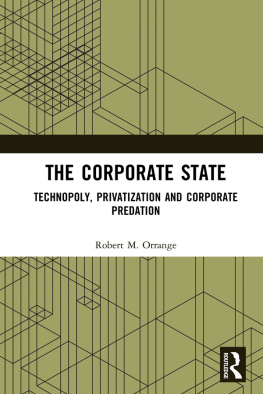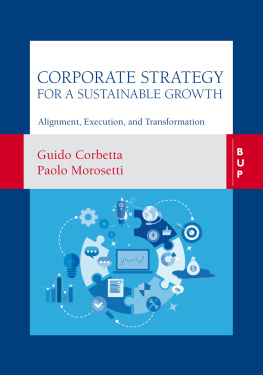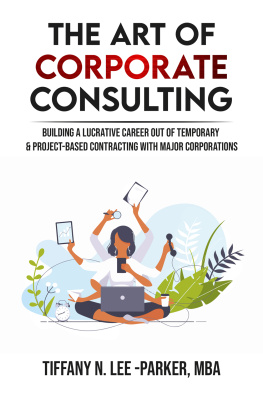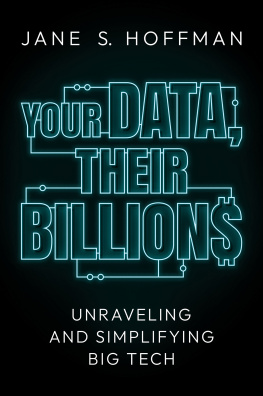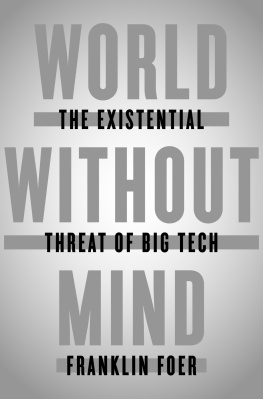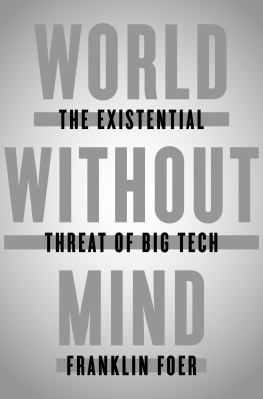Robert M. Orrange - The Corporate State: Technopoly, Privatization and Corporate Predation
Here you can read online Robert M. Orrange - The Corporate State: Technopoly, Privatization and Corporate Predation full text of the book (entire story) in english for free. Download pdf and epub, get meaning, cover and reviews about this ebook. year: 2020, publisher: Routledge, genre: Politics. Description of the work, (preface) as well as reviews are available. Best literature library LitArk.com created for fans of good reading and offers a wide selection of genres:
Romance novel
Science fiction
Adventure
Detective
Science
History
Home and family
Prose
Art
Politics
Computer
Non-fiction
Religion
Business
Children
Humor
Choose a favorite category and find really read worthwhile books. Enjoy immersion in the world of imagination, feel the emotions of the characters or learn something new for yourself, make an fascinating discovery.
- Book:The Corporate State: Technopoly, Privatization and Corporate Predation
- Author:
- Publisher:Routledge
- Genre:
- Year:2020
- Rating:5 / 5
- Favourites:Add to favourites
- Your mark:
The Corporate State: Technopoly, Privatization and Corporate Predation: summary, description and annotation
We offer to read an annotation, description, summary or preface (depends on what the author of the book "The Corporate State: Technopoly, Privatization and Corporate Predation" wrote himself). If you haven't found the necessary information about the book — write in the comments, we will try to find it.
This book critically examines key features of the contemporary organizational landscape by focusing on major beneficiaries of recent historical politicalcultural transformations involving the embrace of market fundamentalism and a market society: corporations, those who direct them, and those who use them for their own benefit.
Part I examines the big US-based tech firms (i.e., Facebook, Google, Apple, and Amazon), highlighting numerous tensions and contradictions between their highly cultivated, flattering, yet unwarranted public images and the reality of how they operate as extremely competitive, at times deceptive, profitseeking entities. A focus on these firms also highlights just how dramatically the economic realm has been transformed over the past few decades due to accelerating advances in information technology and corporate-managed globalization. Part II explores how the state has been pushed back via privatization and corporate predation in such areas as health care, military/security, criminal justice, philanthropy, and education and concludes by looking forward with a vision of a knowledge-caring society that must rebalance corporate-managed market fundamentalism.
Through the use of clear cases that bring the theory to life for students, the book is ideal as a supplementary text for advanced undergraduate and graduate students in a range of coursework in the fields of organizational theory and behavior, leadership in organizations, and management responsibility and business ethics. It will also be of great interest to students of sociology, specifically in the areas of complex organizations, economic sociology, theory, political sociology, and law and society.
Robert M. Orrange: author's other books
Who wrote The Corporate State: Technopoly, Privatization and Corporate Predation? Find out the surname, the name of the author of the book and a list of all author's works by series.

